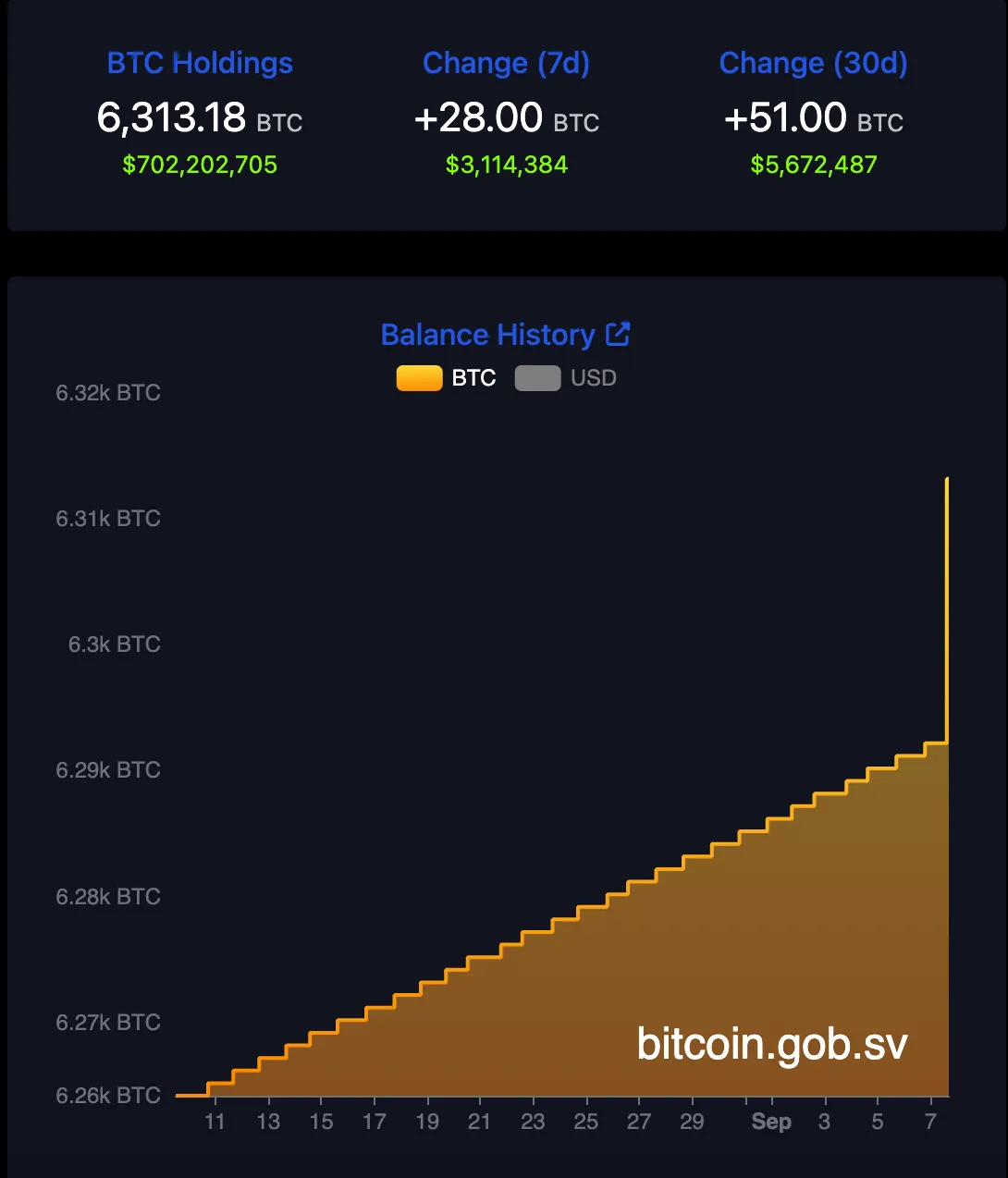El Salvador Marks Four Years of Bitcoin Adoption With Mixed Outcomes
-

El Salvador’s Bitcoin Office celebrated “Bitcoin Day” this week, marking the fourth anniversary of the country’s landmark Bitcoin Legal Tender Law, which first took effect in September 2021.
Key Highlights From the Celebration
Strategic Reserve: The country currently holds 6,313 BTC in its national reserve, valued at over $702 million.
New Banking Law: A recent measure allows Bitcoin investment banks to operate and serve sophisticated investors.
Education Push: The government says 80,000 public servants are now certified in Bitcoin and that the country hosts several public Bitcoin and AI education programs.
IMF Loan Deal Scales Back Bitcoin Policies
Despite these milestones, El Salvador’s Bitcoin policies have been tempered by a $1.4 billion loan agreement with the International Monetary Fund (IMF).
In January, lawmakers repealed the Bitcoin legal tender law and pledged to stop buying BTC with public funds.
The government also agreed to scale down support for the Chivo wallet, its state-backed Bitcoin app.
The IMF confirmed in July that El Salvador has not purchased any new Bitcoin since December 2024.
A Divided Legacy
The Bitcoin experiment remains controversial:
Supporters see the reserve, banking law, and education programs as evidence that El Salvador is still a pioneer in crypto adoption.
Critics, however, argue that the benefits are concentrated in government and international institutions, not in the daily lives of ordinary citizens. They stress that grassroots education is essential for real adoption of Bitcoin as peer-to-peer money.
As El Salvador’s four-year experiment shows, Bitcoin adoption at the nation-state level is possible — but aligning it with global financial systems comes with trade-offs.

















